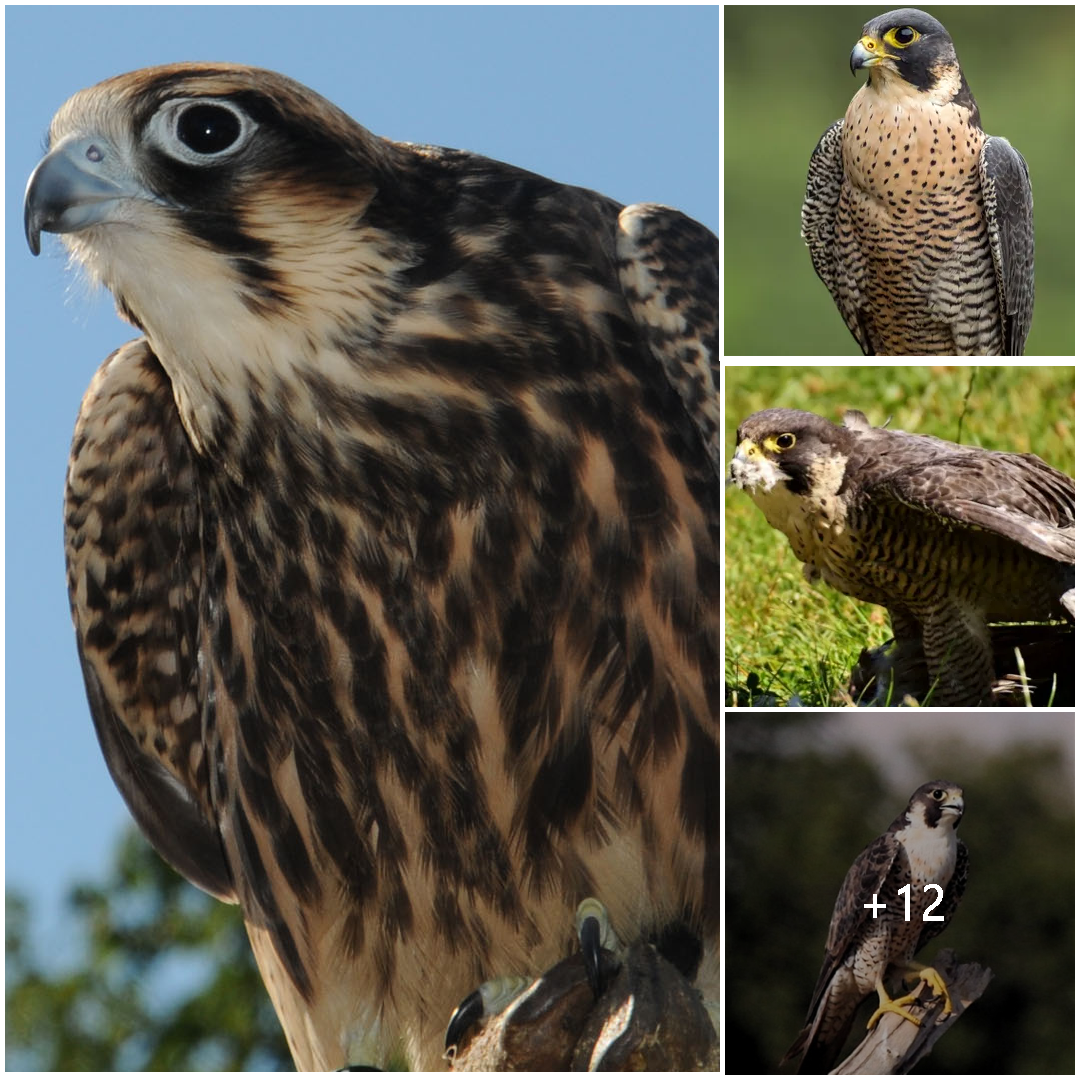
Falcon: The Swift and Fearless Raptors
Falcon, a group of birds of prey belonging to the family Falconidae, are renowned for their speed, agility, and predatory prowess. These majestic raptors are distributed across the globe, inhabiting a wide range of habitats from deserts and grasslands to forests and urban areas. Let’s delve deeper into the fascinating world of falcons.
Physical Characteristics: Falcons are characterized by their sleek bodies, long wings, and sharp, hooked beaks, which are well-adapted for tearing into the flesh of their prey. They have excellent eyesight, enabling them to spot potential prey from great distances while soaring high in the sky. Most falcons have distinctive facial markings, including dark “sideburns” or “moustaches,” which help reduce glare and improve their vision.
Species Diversity: The falcon family encompasses a diverse array of species, including the iconic Peregrine Falcon, the fastest animal on the planet, capable of reaching speeds of over 240 miles per hour (386 kilometers per hour) during its characteristic high-speed stoop. Other notable species include the Merlin, Kestrel, Gyrfalcon, and Prairie Falcon, each with its unique characteristics and hunting techniques.
Hunting and Feeding Behavior: Falcon’s hunting techniques vary depending on their habitat and prey preferences. They are adept aerial hunters, relying on their speed and agility to pursue and capture prey mid-flight. Falcons primarily feed on birds, insects, and small mammals, swooping down from above to ambush their unsuspecting victims. Their powerful talons and razor-sharp beaks enable them to dispatch prey quickly and efficiently.
Conservation Status: While some falcon species, such as the Peregrine Falcon, have made remarkable recoveries thanks to conservation efforts, others remain threatened by habitat loss, pollution, and persecution. Illegal hunting and pesticide use continue to pose significant threats to falcon populations worldwide. Conservation measures, including habitat preservation, captive breeding programs, and monitoring of nesting sites, are essential for ensuring the survival of these magnificent birds.
Cultural Significance: Falcons have captivated human imagination for centuries and hold significant cultural and symbolic importance in many societies. They have been revered as symbols of strength, courage, and nobility, often associated with gods and rulers in ancient mythologies and folklore. Falcons have also played prominent roles in hunting traditions, particularly in the art of falconry, an ancient practice dating back thousands of years.
In conclusion, falcons are extraordinary birds renowned for their speed, agility, and predatory prowess. As apex predators, they play a vital role in maintaining the ecological balance of their habitats. It is imperative that we continue to conserve and protect these magnificent raptors for future generations to admire and cherish





